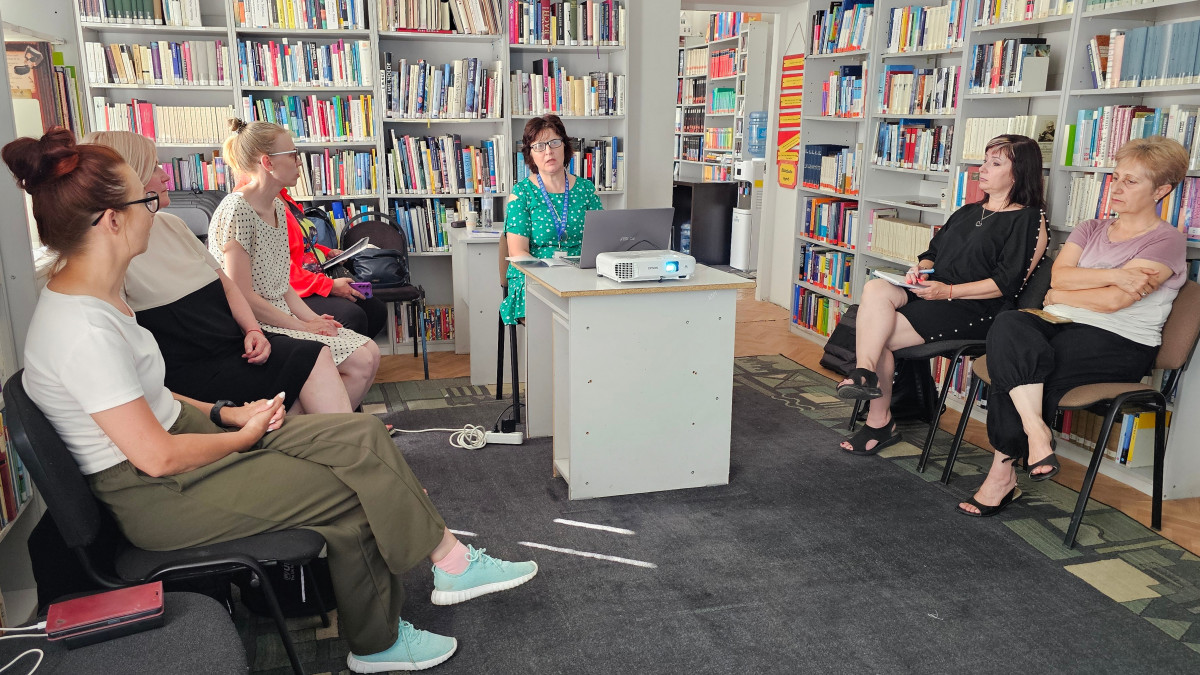Emotional healing and family reconnection in Moldova for those affected by war
Published: Jul 31, 2025 Reading time: 4 minutes Share: Share an article
For many who fled the war in Ukraine, hardship and suffering did not stop at the border. Trauma, uncertainty, longing, and family disintegration followed them into their places of refuge. In response to these invisible wounds, two programs developed by the National Center for Child Abuse Prevention (CNPAC) — as part of the PLACE II project funded by the European Union — have become more than just educational sessions. They serve as vital emotional lifelines.
In June alone, 47 people — parents and teenagers, both Ukrainian refugees and members of Moldovan host communities — took part in the CONECT. Adolescence Explained to Parents and 12PLUS programs, which focus on rebuilding family relationships, fostering emotional resilience, and providing psychological support.
The programs aim to reconnect emotionally parents with their children, foster empathetic dialogue, encourage healthy emotional expression, and rebuild trust.
One of the participants, Kseniya, fled from Kherson with her 14-year-old son. She now raises him alone in Moldova, after her husband remained in Ukraine.
For many refugee families, war meant not only the loss of a home but also the breakdown of family bonds. Liubov, from the Kharkiv oblast, arrived in Moldova with her two children. Her relationship with her 11-year-old daughter became increasingly strained, despite her best efforts.
Iryna, a teacher from the Chernihiv oblast, lived for almost a year and a half amid war before arriving in Moldova with her 11-year-old son.
For her, the CONECT program has a double significance — both personal and professional.
In Chișinău and Cahul, sessions are held in safe, inclusive spaces supported by trained professionals. Here, painful experiences are given meaning, and silence is gently transformed into dialogue. This kind of support is not a one-time intervention — it’s part of a longer process of human reconstruction, in which parents — regardless of nationality, language, or background — learn once again how to be emotional anchors for their families.
The programs are carried out as part of the PLACE II project, funded by the European Union and implemented by People in Need Moldova, in consortium with Acted Moldova, REACH (IMPACT Initiatives), the Norwegian Refugee Council (NRC), and Intersos Moldova.
The PLACE project was launched in 2022 in response to the Ukrainian refugee crisis triggered by Russia’s full-scale invasion of Ukraine. The project provides multisectoral assistance to Ukrainian refugees in the Republic of Moldova, as well as to vulnerable members of host communities.
During its first phase, People in Need Moldova supported approximately 15,000 people. Key achievements include:
11,762 people received individual or group psychosocial support to help restore emotional balance.
- 513 Ukrainian and Moldovan children received warm clothing and winter footwear.
- Over 1,000 individuals received financial aid to cope with the cold season.
- 682 children and young people had access to Child-Friendly Spaces—safe environments for learning, playing, and personal development.
- 838 people were assisted in registering for the national ”Ajutor la Contor” program.
Currently in its second phase, People in Need Moldova continues to provide psychosocial support to refugees and host community members, along with social protection services for vulnerable individuals.



